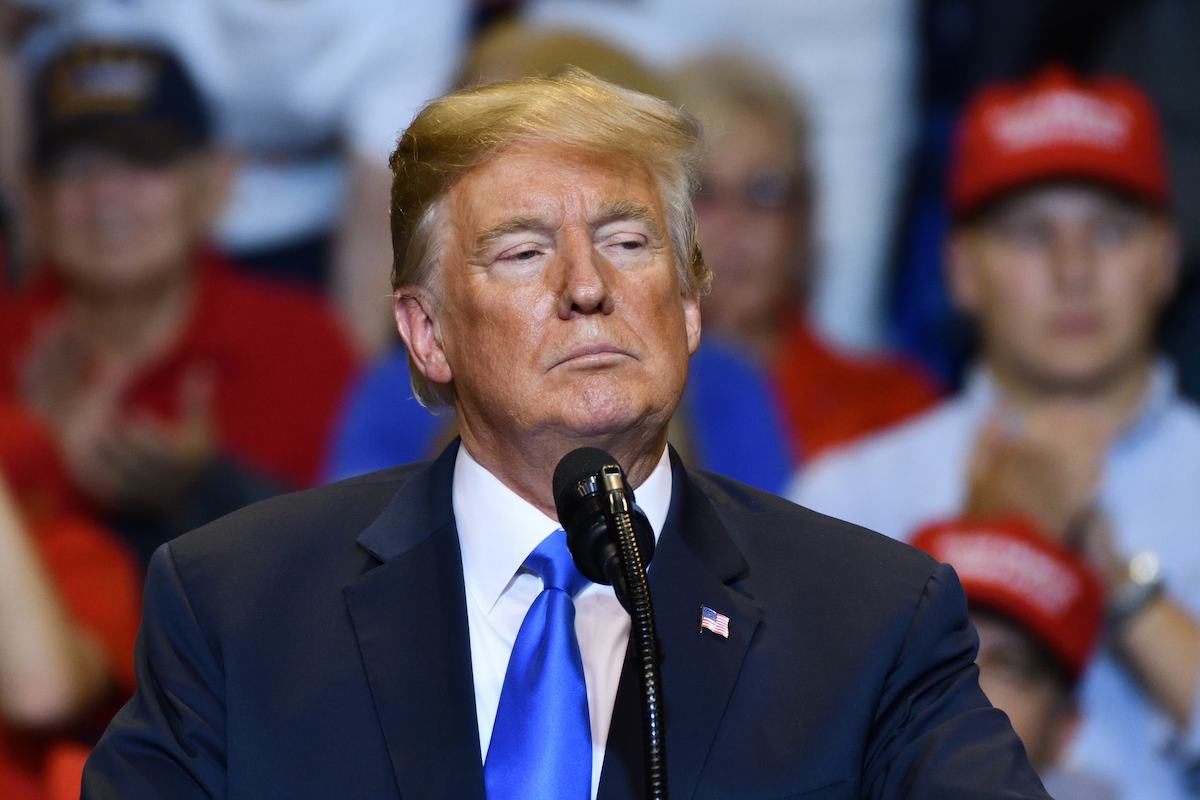U.S. LNG Export Growth Faces Uncertainty as Trump’s Tariff Proposal Looms, Analysts Say
(Reuters) — U.S. exporters of liquefied natural gas (LNG) could face new hurdles if Republican Donald Trump wins the presidential election because of a proposed 60% tariff on imports from China, despite the former president's pledge to speed new energy permits, say analysts.
The U.S. became the world's largest exporter of the super-chilled gas last year, generating tens of billions of dollars in annual trade. Exports will average 12.1 billion cubic feet per day this year, almost double their level four years ago, according to U.S. government estimates.
Even greater potential gains have been stalled because President Joe Biden's Energy Department paused approvals for new LNG export permits to non-free trade agreement countries. A federal judge in July blocked the administration's ability to continue the pause in approvals of applications and in September, DOE authorized New Fortress Energy Inc. to export up to 1.4 million tonnes a year of LNG.
The Democratic presidential campaign of Vice President Kamala Harris has not said whether she would attempt to continue the pause.
Trump has promised to speed up energy permitting, but this promise could be undercut by his plan to apply 60% tariffs on imports from China, said Erica Downs, Senior Research Scholar at Columbia University's Center on Global Energy Policy. She warned that China might reciprocate by avoiding new contracts and re-exporting U.S. cargoes to other nations.
Re-Exports to Avoid Tariffs
"The destination flexibility of U.S. LNG means that Chinese companies can on-sell it to other buyers to avoid paying the tariff," Downs told Reuters.
Last year, China accounted for about 4% of total U.S. LNG sales. Its companies have long-term contracts to take almost 28 million metric tons per annum (MTPA) of LNG in the future, seven times what it bought last year.
"Trump will stimulate investment, but at the cost of heightened trade risks, especially with China," added Alex Munton, consultancy Rapidan Energy's director of global gas.
The largest U.S. LNG exporter, Cheniere Energy, in June said it agreed to sell a subsidiary of China's ENN Natural Gas 1.8 MTPA of the superchilled gas, with deliveries to commence in mid-2026. The contract allows ENN to ship the fuel anywhere in the world.
Natural gas demand in Louisiana and Texas, the two states with the most LNG export facilities, expanded by 116% between 2016 and 2022, driven largely by increased demand for feedgas for LNG exports, according to EIA data.
Scare Tactic
The Trump campaign has rejected claims that his proposed tariffs could hurt LNG exports, calling it a scare tactic by opponents. Tariffs and deregulation will increase U.S. jobs and production by encouraging companies to drill and produce more oil and gas, campaign spokespeople said.
"Kamala Harris is trying to fearmonger and lie about his plan even though she and Joe Biden kept the Trump era tariffs in place," said campaign spokesperson Anna Kelly.
Data from the U.S. Energy Information Administration shows Trump's 2018 sanctions on China caused a 12-month freeze of Chinese imports of U.S. LNG that lasted until March 2019.
If China wanted to retaliate over tariffs, U.S. LNG and oil would be high on its list of imports since they rank among the most valuable U.S. exports to China, said Columbia's Downs.
"There are other LNG exporters that undoubtedly would be very happy to sell more LNG to China," Downs told Reuters.
The Harris presidential campaign did not respond to a request for comment. U.S. environmental groups that oppose new LNG plants view Harris as a possible ally.
"Harris has been a proven climate champion throughout her career," said Mahyar Sorour, Sierra Club's Director of Beyond Fossil Fuels Policy.
Three U.S. companies whose projects face potential permitting delays - Energy Transfer, Venture Global LNG, and Commonwealth LNG - declined to comment.
Top exporter Cheniere Energy, which has new projects on the drawing board, said it has worked with both Democratic and Republican administration and is confident it will do so after the Nov. 5 election.
Related News
Related News

- Enbridge Plans 86-Mile Pipeline Expansion, Bringing 850 Workers to Northern B.C.
- Intensity, Rainbow Energy to Build 344-Mile Gas Pipeline Across North Dakota
- U.S. Moves to Block Enterprise Products’ Exports to China Over Security Risk
- Strike Pioneers First-of-Its-Kind Pipe-in-Pipe Installation on Gulf Coast with Enbridge
- 208-Mile Mississippi-to-Alabama Gas Pipeline Moves Into FERC Review
- U.S. Pipeline Expansion to Add 99 Bcf/d, Mostly for LNG Export, Report Finds
- A Systematic Approach To Ensuring Pipeline Integrity
- 275-Mile Texas-to-Oklahoma Gas Pipeline Enters Open Season
- LNG Canada Start-Up Fails to Lift Gas Prices Amid Supply Glut
- Strike Pioneers First-of-Its-Kind Pipe-in-Pipe Installation on Gulf Coast with Enbridge





Comments